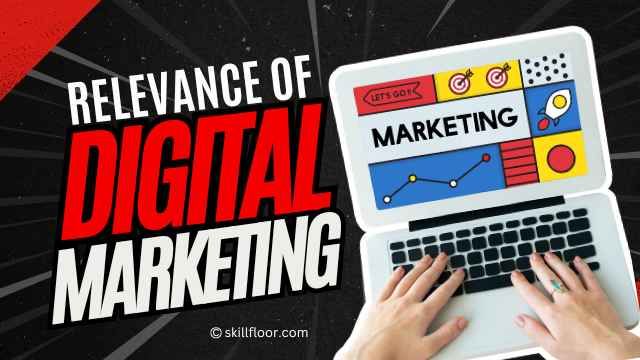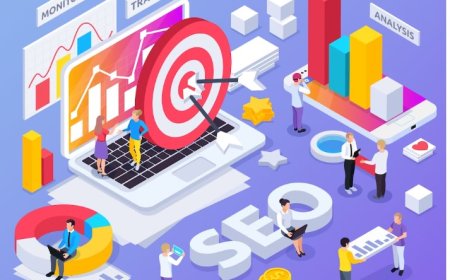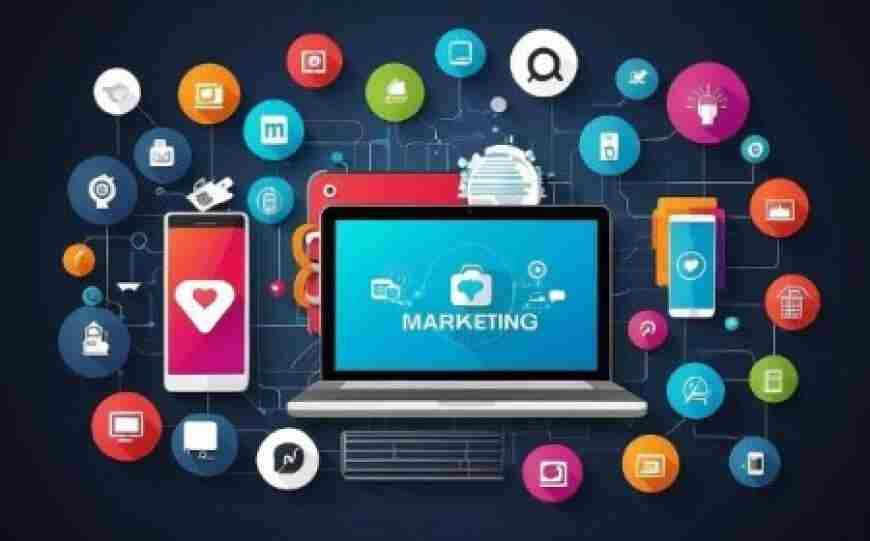The Relevance of Digital Marketing for Modern Businesses
Digital marketing is key for modern businesses, offering cost-effective strategies, wider reach, and engagement to drive growth in today's competitive environment.

How Businesses Operate Today
As someone who works in digital marketing, I’ve seen firsthand how businesses have changed how they reach customers. Previously, businesses used traditional methods like newspaper ads, flyers, or TV commercials. Now, more and more people use the internet daily, so businesses have to change how they communicate to reach their customers online.
Today, the world is digital. People use the internet to shop, connect, and research before buying anything. This change means businesses also need to be online to meet their customers. Without an online presence, businesses might lose out on potential customers to competitors who do have a strong digital presence.
Challenges in Digital Marketing
Despite all the advantages of digital marketing, many businesses find it hard to keep up. The biggest challenge is understanding the ever-changing online environment. With so many platforms and tools available, it can feel overcome for businesses to know where to start. When I talk to business owners, I often hear their worries about the costs and whether their efforts will pay off.
Plus, the competition gets tougher as more companies start using digital marketing. Businesses that stick to old methods may find it difficult to stay relevant.
How can digital marketing help modern businesses succeed?
Why is Digital Marketing Important?
The answer to this question lies in the many benefits digital marketing brings to businesses today. I want to share how digital marketing can help businesses become more visible, connect with their audiences, and achieve better results.
1. Introduction to Digital Marketing
First, let’s define what digital marketing means. Digital marketing is any marketing effort that uses online channels to reach customers. This includes different methods like:
-
Search Engine Optimization (SEO): This helps businesses appear higher in search engine results, so more people find them.
-
Content Marketing: Creating useful and engaging content to attract and keep customers interested.
-
Social Media Marketing: Using platforms like Facebook and Instagram to connect with audiences and promote products.
-
Email Marketing: Sending targeted emails to potential customers to keep them engaged and informed.
-
Pay-Per-Click Advertising (PPC): Running paid ads on search engines and social media to reach specific audiences.
These components work together to create an effective digital marketing strategy that helps businesses grow.

2. Current Business environment
Today’s business environment is very different from what it used to be. More and more people are shopping online and using their mobile devices for almost everything. This behavior change, which was accelerated by the COVID-19 pandemic, has made digital marketing essential.
Some important trends I’ve noticed include:
-
More People Shopping Online: With the convenience of online shopping, more customers prefer to buy products through the Internet.
-
Social Media as a Marketing Tool: Social media platforms have become powerful ways for brands to engage with their audience.
-
Using Data for Decision Making: Businesses now rely on data to guide their marketing strategies, allowing for more targeted and effective approaches.
For businesses today, this means that digital marketing is not just an option; it’s a must-have to remain competitive.
3. Key Benefits of Digital Marketing for Modern Businesses
From my perspective, several important benefits make digital marketing crucial for businesses today:
-
Cost-Effective: Digital marketing is often cheaper than traditional methods. For instance, running a Facebook ad is usually less expensive than making a TV commercial, and businesses can control their budgets better.
-
Wider Reach: Digital marketing allows businesses to reach customers all over the world. This is especially useful for online stores that want to sell their products globally.
-
Targeted Advertising: With digital marketing, businesses can target specific groups of people based on their interests and behaviors. For example, a store selling sports equipment can show ads to people interested in fitness.
-
Real-Time Analytics: One of the best things about digital marketing is that businesses can track their results immediately. They can see what’s working and what isn’t and adjust their strategies accordingly.
-
Higher Engagement: Digital marketing lets businesses interact directly with their customers. They can respond to comments, answer questions, and create conversations, which helps build relationships.
-
Building Brand Loyalty: When businesses engage meaningfully with their customers online, it helps create trust. Customers who feel connected to a brand are more likely to return and recommend it to others.
-
Adaptability: The digital world is always changing. Businesses can quickly adjust their marketing strategies to stay relevant and meet customer needs.
4. Importance of Digital Marketing for Small vs. Large Businesses
I’ve seen that digital marketing is important for both small and large businesses, but they benefit in different ways.
-
For Small Businesses: Digital marketing gives small businesses a chance to compete with larger brands. With limited budgets, they can use tools like SEO and social media to create their presence without spending a lot of money.
-
For Large Businesses: Bigger companies can use digital marketing to strengthen their brand and connect with a vast audience. They often have the resources to invest in advanced marketing techniques and can analyze data to improve their efforts.
Overall, digital marketing provides opportunities for both small and large businesses to thrive in today’s competitive market.
5. Challenges and Considerations
While there are many benefits to digital marketing, businesses also face some challenges. Here are a few:
-
Complexity: The digital world can be confusing. With so many tools available, businesses might find it hard to decide which strategies to use.
-
Keeping Up with Changes: Digital marketing trends are constantly changing. Businesses need to stay informed and adapt to new developments to remain competitive.
-
Data Privacy Issues: As consumers become more concerned about privacy, businesses must be careful about how they collect and use customer data. Following regulations is crucial to maintaining trust.
-
Content Saturation: The internet is full of content, which makes it hard for businesses to stand out. They need to create unique and valuable content to attract attention.
-
Budget Constraints: Although digital marketing can be affordable, businesses still need to spend their resources wisely. Limited budgets might restrict their ability to explore all strategies.
Even with these challenges, the benefits of digital marketing outweigh the difficulties. By investing time and resources into creating a strong digital strategy, businesses can succeed online.
6. Future Trends in Digital Marketing
Looking ahead, I see several trends that will shape digital marketing in the future:
-
Artificial Intelligence (AI): AI is becoming more common in digital marketing. Businesses can use AI tools for analyzing data, creating personalized campaigns, and even chatting with customers through chatbots.
-
Voice Search Optimization: As more people use voice-activated devices, businesses need to optimize their content for voice search. This means adjusting their SEO strategies to accommodate this growing trend.
-
Video Marketing: Video content is becoming increasingly popular. Platforms like YouTube and TikTok are driving the demand for engaging video content, and businesses that leverage this can capture attention more effectively.
-
Sustainability and Ethical Marketing: As customers become more aware of environmental issues, businesses that promote sustainable practices in their marketing will likely resonate with their audience.
-
Augmented Reality (AR) and Virtual Reality (VR): These technologies are gaining traction in digital marketing. Brands are looking for ways to incorporate AR and VR experiences to engage customers more deeply.
As digital marketing continues to evolve, staying on top of these trends will be crucial for businesses wanting to maintain their relevance.
Accepting Digital Marketing for Success
Digital marketing is incredibly important for modern businesses. The environment has changed, and those who embrace digital strategies are better positioned to succeed.
Through my experiences, I’ve seen how digital marketing offers many benefits, such as being cost-effective, reaching a wider audience, and improving engagement. Whether you run a small startup or a large company, investing in digital marketing is essential to connecting with your customers and driving growth.
While challenges exist, the potential rewards of effective digital marketing are significant. As we move forward, staying informed about trends and adapting our strategies will be crucial. By doing so, we can harness the power of digital marketing to achieve our business goals and build lasting connections with our customers.






























































